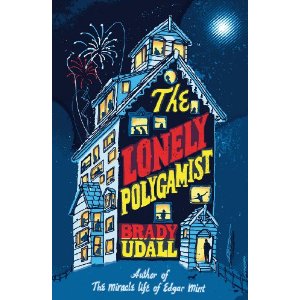In 2017, I wrote a 6,000-word story to enter in the Galley Beggar Press Short Story Competition. As with several short stories I’ve written, it started out as a poem.

Based on a real-life murder, that happened while I lived in Atlanta, it was one of several pointless slayings that haunted me. A middle-aged family man, a hard worker without a criminal record and with no known enemies, was found sitting dead at the steering wheel of his pickup truck at a set of traffic lights on a remote industrial estate at 3:00 am. He’d finished work an hour before, and someone had drawn alongside and fired a bullet through his window and into his head. The engine was still running, the radio playing.
Responding to an anonymous phone call, a police patrol car discovered him. No attempt had been made to rob the victim, and with no witnesses, his murderer was never caught. Police theorised that he’d simply been killed because he was vulnerable. Perhaps a gang member was testing out his new gun for the first time. The slaying may have been incited by the 9/11 terrorist atrocities, which happened the year before, as there’d been many racially motivated attacks against innocent Muslims nationwide. But, the dead man was a light-skinned Mexican—simply in the wrong place at the wrong time with the wrong people.
I wrote the story as a three-hander, from the point of view of the victim, the police patrol officers and the gang member who pulls the trigger. As I made notes for the story, sketching out a plot, I had the unsettling thought that this gloomy tale was just that—a depressing narrative with no redemption and no moral message.
Then, I recalled a short story by my favourite writer of this form. Guy de Maupassant worked at the end of the 19th-century, and his stories are brilliant vignettes of avarice, cruelty, envy, suspicion and lust among the peasants and the gentry, Two Friends is set at the time of the war between France and Prussia, and is without mercy, simply describing what would likely have happened at the time. It’s worth a read:
ebooks.adelaide.edu.au/m/maupassant/guy/two-friends

Inspired by de Maupassant, I went for a similar atmosphere with my short story. A matter of fact fait accompli recitation of a tragic event, without making a moral message.
My dilemma over what to do with Bullet At The Lights made me reflect on how I’d handled the tone of previous short stories and novels. It’s easier to take liberties in the short form, as novels are more hidebound by convention, especially when writing about crime. Sometimes, I’ve made oblique moralistic comments via my characters, but I haven’t been heavy-handed and preachy. Then again, the goodies, my police detectives, usually triumph over the baddies, though one committed suicide and another, a serial killer, may have escaped as his body was never found.
Amazingly enough, there was once a time with the BBC, back in the 1960s and early ’70s, when it was a stipulated regulation that in any crime drama the police always had to win—the villains had to be caught, punished and regretful. This led to some unsatisfactory tacked-on endings to scripts that had been believably well-rounded up until the point where the coppers made some miraculous breakthrough.
Sam Goldwyn, the Hollywood film producer, once said that “If you’ve got a message send a telegram.”
How do you handle the morality of your stories? Do sinners have to be punished, or do they get away with it? Writing bad guys is always more fun than portraying fine upstanding heroes—which is why so many have character flaws to make them feel more human.
Do you censor yourself, for fear of leading your readers into misfortune? I’ve done so a couple of times, with my crime novels, when I decided that I’d given too explicit instructions on how to throttle someone with a garotte, and how to make an improvised explosive device,
Artists of all types, but especially film directors, refuse to accept responsibility for what they’ve shown, taking the stance that it’s up to individuals to behave in a humane and legal manner. Have you ever worried that you were leading your readers astray?






